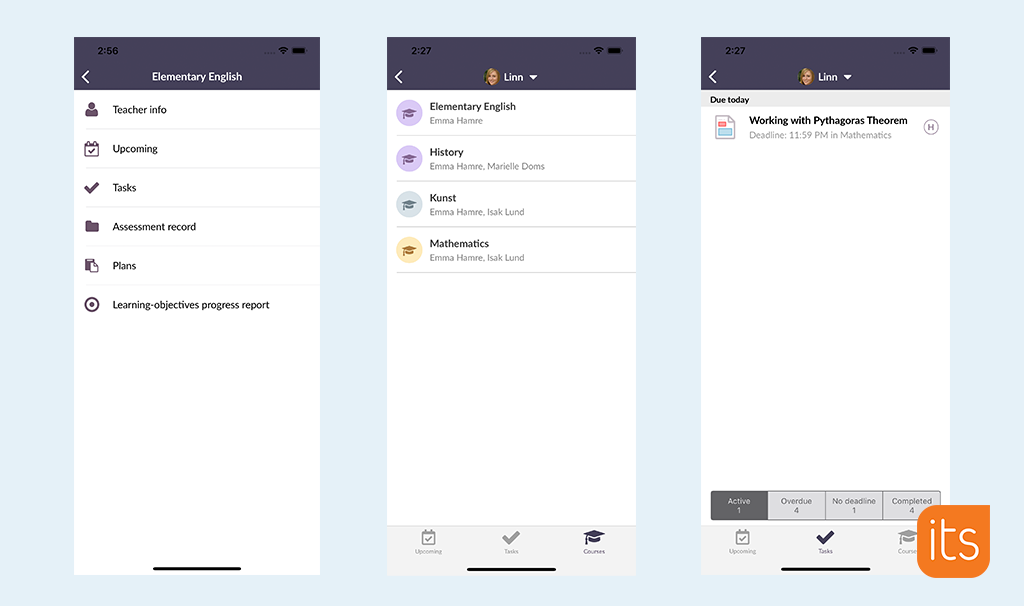Studies have shown that children whose parents are involved in their education are more likely to attend school regularly, have higher self-esteem, get better grades and demonstrate better behaviour in and out of the classroom.
Furthermore, parental involvement can help create a positive learning environment, foster better communication between parents, teachers, and students, and help parents stay informed of their child's progress and any issues they may be facing.
In short, parents who are involved in their child's school life can make a significant difference in their academic and personal growth.
Why is Family Engagement so important for children?
Family engagement, also known as family involvement, is an essential component of a child's academic and social success. It refers to the active participation of families in their child's education, both at home and at school.
The Global Family Research Project, which is led by researchers from Harvard University, identifies systemic family engagement as a core component of educational goals such as student achievement, school turnaround, and school readiness.
And according to youth.gov, family involvement is critical in promoting physical health, cognitive and social-emotional development, and academic achievement in children and youth from pre-kindergarten to high school, and well-being that lasts into adulthood.
The benefits of Family Engagement for Students
The Harvard Family Research Project identifies important benefits of Family Engagement and why teachers and educators should invest time and energy into it. Here are some of them:
- Higher grades - Kids whose parents are involved in their education get better grades and have higher test scores. The more parents are involved, the more their children seem to benefit. A study of parents highly involved in the educational process showed that their children were more likely to improve in reading and math.
- Better behaviour - Kids develop better social skills and show improved behaviour when their parents are involved at school. Studies have also shown that kids are less likely to skip school, are less disruptive in class, and are more likely to do their homework when their parents are involved. One study showed that when dads are highly involved in school, children enjoy school more and are less likely to be suspended, expelled, or required to repeat a grade.
- Improved education - Research shows that parent involvement can help improve the quality of schools, raise teacher morale, and improve a school’s reputation in the community. Involved parents gain the respect of teachers; as a result, teachers have higher expectations of their children. Involvement pays off in the long term, too: Children stay in school longer and are more likely to continue their education after high school.
- Increased confidence - When students feel supported at home and school, they develop more positive attitudes about school, have more self-confidence, and place a higher priority on academic achievement. Children of involved parents are more likely to feel that they’re accepted, included, and respected at school.
- Parents benefit too - When parents become involved in their children’s education, they become more comfortable in the school building, gain confidence in their parenting skills, and feel more capable of helping their children learn. They’re also more likely to continue their own education.
How To Increase Family Engagement?

After listing so many good aspects of being active in a child’s school life, parents and teachers may be asking themselves: but what can I do? Alongside dedication and some planning, here are some tips on what can be done:
- Volunteer opportunity: the school might need an extra hand in social, sports and academic events. This is a great way for parents to get to know the school environment and socialize with staff and other parents.
- Family Nights: schools should invite students and their families to casual events – informal, easy-going gatherings for teachers and parents, without tension or formalities. They are also a great excuse to have siblings and other family members visit the child’s classroom.
- Parent/teacher conferences: digital communication is needed, but face-to-face communication will never grow old. Parent/teacher conferences are important to give parents and guardians a better understanding of the child’s environment.
- Institute a Parent Engagement Program: Schools can organize programs to bring guardians together for the benefit of students. This is another way to engage guardians to take an active role in schools.
- Give Teachers Feedback: Parents can be a valuable piece of educators’ teaching strategy. Kids are not always open with their struggles, so parents can let teachers know what kids are going through, if anything.
- Build trust: Research shows that a lack of trust is often what keeps families from spending time at school (Henderson and Mapp, 2002; Mapp, 2003). Try to let guardians be part of school activities and school decisions.
- School mobile app: one of the best ways to maintain teacher/guardian communication is to use the School App, like the itslearning Parent App. In this way, parents get a clear view of their kids’ tasks, calendars and assignments.
The itslearning parent app can help guardians stay engaged and updated

Apps are the simplest way to access social media, emails, courses, etc., and the itslearning parent app is an excellent way to strengthen the parent-school relationship and consolidate student information in one place.
Here are the key elements of the itslearning parent app:
- Calendar View: The calendar automatically puts together a weekly view of the child's lesson plans, resources, events, and homework including deadlines.
- Course View: Access all your child's courses that are available in itslearning. Choose a subject and get an overview of the information that is available like: teachers in the course, events in the timetable for the course, tasks, assessments and lesson plans.
- Task View: The task view allows you to see all the tasks your children will be working on, and sorts the tasks into different categories: active, overdue, without a deadline or complete.
In short, the parent app enables guardians to stay informed about their children's school life, so that they can actively support their academic success and foster a positive learning environment at home.
Do you want to learn more about the app? Click here.
